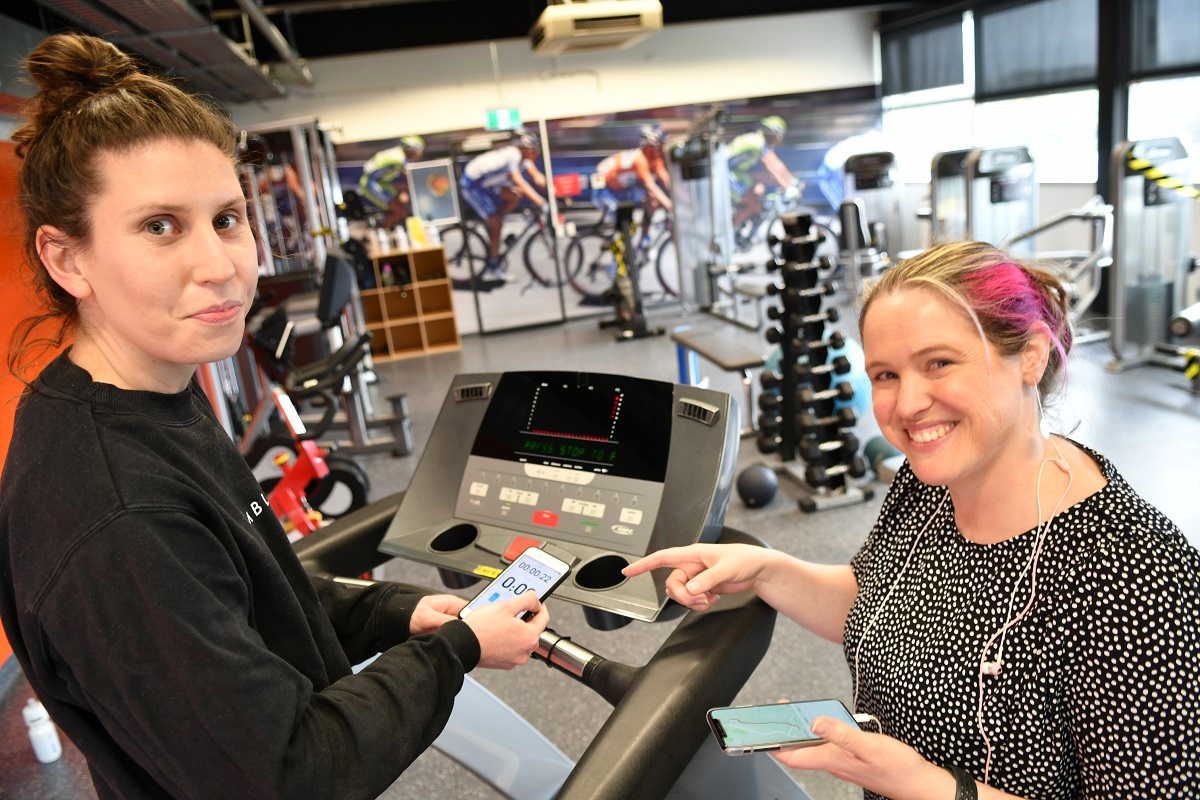
Apps alone don’t motivate most people to exercise but interacting with an online exercise community as well provides the impetus for exercisers to do more – and enjoy what they are doing.
New research led by Flinders University PhD candidate Jasmine Petersen examining commercial physical activity apps has found that the social components of these apps hold great potential to increase physical activity engagement.
Sharing physical activity outcomes and progress to app communities and social networking platforms provides the necessary encouragement for people to engage more enthusiastically with their apps.
“Sharing posts and receiving encouragement provides the social support many people need to stay motivated with exercise programs – and this doesn’t change across different age groups,” says study co-author Dr Ivanka Prichard, from Flinders University’s Caring Futures Institute.
The study – Psychological mechanisms underlying the relationship between commercial physical activity app use and physical activity engagement, by Jasmine Petersen, Lucy Lewis, Eva Kemps and Ivanka Prichard – is published in Psychology of Sport and Exercise. (DOI: 10.1016/j.psychsport.2020.101719)
The study examined close to 1300 adults (88% female, aged between 18 and 83 years), over half of whom used a commercial physical activity app (e.g. Fitbit, Garmin, Strava). Results found that more competitive individuals responded best to the apps, engaging in significantly higher levels of physical activity due to the game-like incentives and rewards built into the apps.
Dr Prichard says this suggests that people with a general disposition toward competition may benefit most from using activity apps.
“App users are motivated by both the enjoyment derived from physical activity (intrinsic motivation) and the personal value placed on the outcomes of physical activity (identified regulation), and these combined motivations result in greater engagement in physical activity,” says Ms Petersen.
This study shows that the social components of physical activity apps are particularly beneficial in promoting engagement in physical activity due to their capacity to facilitate social support, and positively influence motivation and beliefs in one’s ability to perform physical activity.
However, it was also found that online interactions can have a negative effect on exercisers if social networking is used to make direct comparisons.
“Engagement in comparisons was associated with lower self-efficacy and higher external regulation, and in turn, lower physical activity,” says Dr Prichard, emphasising the importance of exercising for enjoyment and the benefits that exercise can provide to general health.
The team are now following up participants to see how commercial physical activity apps might support physical activity behaviour in light of COVID-19 restrictions.

